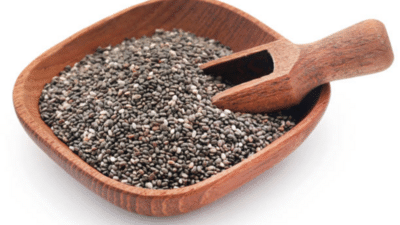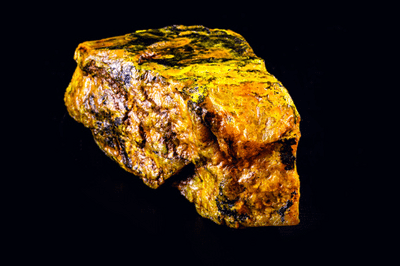
So, chia seeds are everywhere—sprinkled on smoothies, tossed into salads, soaked into pudding, and hyped all over social media as the ultimate superfood. One of the buzziest claims? That they can “detox” your liver, especially if you’re dealing with fatty liver disease. But can a tablespoon of chia really clean your liver like a miracle mop?
Fatty liver disease, or hepatic steatosis, happens when too much fat builds up in liver cells. It can be caused by alcohol (alcoholic fatty liver disease) or, more commonly these days, by poor diet and sedentary lifestyle (non-alcoholic fatty liver disease or NAFLD). It often flies under the radar because there are usually no early symptoms. But over time, it can mess with your metabolism, make you tired, inflame the liver, and even lead to cirrhosis.
Doctors usually recommend losing weight, exercising, and eating better—especially cutting down on sugar and saturated fats. But can chia seeds really help reverse the damage?
Chia seeds: What’s in them that makes them “liver-friendly”?
Chia seeds are tiny, yes, but they pack a serious nutritional punch. They're loaded with fiber, omega-3 fatty acids (specifically ALA), antioxidants, and plant-based protein. These nutrients are known to support overall health, but several of them are particularly good for the liver.
Omega-3s, for example, help reduce liver fat accumulation and inflammation—two things that are central to managing fatty liver. Fiber, on the other hand, helps regulate blood sugar and insulin levels, which can reduce fat storage in the liver. The antioxidants help fight oxidative stress, which plays a key role in the progression from simple fatty liver to more serious conditions like NASH (non-alcoholic steatohepatitis).
So yes, chia seeds have components that are supportive of liver health. But that still doesn’t mean they can “detox” the liver in a magical way.
The myth of liver “detoxing” needs a detox itself
Your liver is the body’s built-in detox machine. It doesn’t need to be “detoxed” by a single food. When people talk about detoxing the liver with chia seeds, lemon water, celery juice, or whatever is trending this week, they’re usually misunderstanding how the liver actually works.
What your liver needs is support, not a miracle cleanse. And that support comes from reducing the toxins it has to process (alcohol, excess sugar, processed food), giving it nutrients to function well (like fiber, healthy fats, and antioxidants), and maintaining a healthy weight. So if chia seeds are replacing potato chips in your diet—great! But don’t expect them to wipe out years of damage on their own.
What does science say?
Some small-scale studies and animal research have looked into chia seeds and fatty liver, and the findings are encouraging but not conclusive. One
study published in Nutrition Research and Practice (2014) showed that rats fed a high-fat diet had reduced liver fat when given chia seeds. Another study in humans found that chia consumption helped reduce visceral fat and improve certain metabolic markers, like triglycerides and insulin resistance.
However, there isn’t yet large-scale human research that directly proves chia seeds can reverse fatty liver. Most of the benefit likely comes from chia’s ability to help with weight loss, insulin sensitivity, and inflammation—all of which are crucial in managing NAFLD.
In short: chia seeds aren’t medicine, but they are a powerful tool when used as part of an overall healthy lifestyle.
So, should you include chia seeds in a fatty liver-friendly diet?
If you’re trying to heal your liver, chia seeds can definitely play a supporting role. Their soluble fiber content helps you feel full longer, which may aid weight loss—a key step in reducing liver fat. Their omega-3 content, though plant-based and less potent than fish-derived DHA and EPA, still contributes to lowering inflammation. Plus, they’re super easy to incorporate into your day—mix them into oats, smoothies, yogurt, or even your dal.
Just remember that moderation matters. Chia seeds are calorie-dense, so overdoing it can backfire. One to two tablespoons a day is usually enough to reap the benefits without going overboard.
Watch out for unrealistic claims and “detox” traps
If someone’s trying to sell you a “fatty liver detox chia cleanse” online, run the other way. These one-size-fits-all approaches are usually more about making money than helping your health. The truth is, no single food will cure fatty liver. What works best is a balanced diet, regular physical activity, good sleep, and consistency over time.
Also, while chia seeds are great, they shouldn’t be the only superstar in your liver health plan. Other foods like leafy greens, berries, turmeric, fatty fish, and green tea all offer evidence-backed benefits for the liver too. A variety of nutrients is always better than putting all your faith in one seed—even if it is as trendy as chia.
Chia seeds help, but they’re not a cure
Chia seeds can be a helpful addition to a fatty liver-friendly diet thanks to their fiber, omega-3s, and antioxidants. They support liver health—they don’t detox your liver in the way Instagram influencers might claim. So keep eating them if you enjoy them, but don’t expect miracles. Pair them with better food choices overall, some movement every day, and regular check-ups with your doctor.
-
Pak drama Parwarish trends in India, fans call it ‘masterpiece’

-
Make a plan to visit these places near Delhi with your partner during monsoon.

-
Pretty UK town named Britain's hottest and it's 200 miles away from the south

-
What is uranium enrichment and how is it used for nuclear bombs? A scientist explains

-
Crisil suggests excluding gold from India's core inflation index for clear domestic trends
